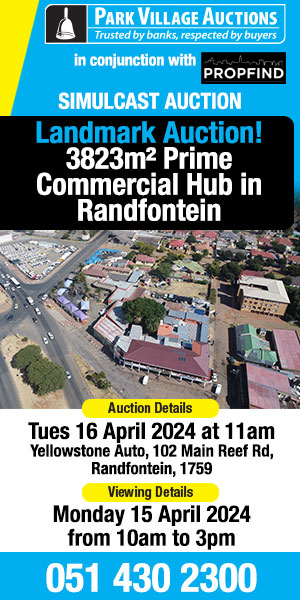 The business division, which is 10 years old, has grown its loan book to close to R13 billion and recently reached its 10 year target of over a 100 000 units financed.
The business division, which is 10 years old, has grown its loan book to close to R13 billion and recently reached its 10 year target of over a 100 000 units financed.
“There is still an enormous amount to do in this market and we are confident that we will see good growth in our business and loan book in the years to come. There is very high demand in the affordable housing sector with an estimated million homes still needed and an average of only 20 000 units developed a year without taking into account future demand,” says Marius Marais, CEO of FNB Housing Finance.
The business unit plans to finance the next 100 000 homes in half the time, by 2018 and has made a commitment to fund approximately 6 000 new housing units to the value of R2bn over the next two years. These units will come from 40 developments that the bank has approved, consisting of a total of 12 000 units.
The affordable housing market in South Africa is defined as households earning between R3 500 and R25 000. This market accounts for about 32% of the entire home loan market, requiring cost effective, good quality housing up to R600 000.
“We recently analysed the latest Census data and our analysis shows that the entire home loan market comprises of about 14 million households. Of this 9 million households earn less than R3 500 per month and qualify for fully subsidised housing. Above this layer lies the affordable housing market, which according to our research comprises of around 4.5 million households of which there is a demand for around a million new homes*,” says Marais.
On the demand side, there is a major need for innovation in financial products in this market as the traditional mortgage loan financial product cannot be the only solution as it is in the higher end market.
“There is a strong need for more innovation and a holistic approach around alternative loan structures such as pension backed loans, and unsecured home improvement loans as well as government subsidies and employer support. We are looking into developing different ways of financing this market combining a mix of these different financial options that can really serve this market’s housing needs,” says Marais.
On the supply side, it is essential to start building more units at the right price level to meet the market demand, Marais says.
“Currently there is no supply of houses to a household earning between R3 500 and R9 000,” says Marais. We are in the process doing work around building specifications with players in the supply chain with a view of finding a lower priced design. This may also mean reducing the starter home size to below 40sqm.”
FNB’s Housing Finance market, of which 96% are first-time homeowners, are most affected by issues of affordability and economic risks such as interest rate increases, inflationary pressures and unemployment.
“The bank can help with some of these risks and about 40% of our new loans are on a fixed rate basis. We would like to see the whole market moving onto a fixed rate mechanism, which will protect the customer from rate increases in the future. Noteworthy to this market, the default rate is more stable than that of the traditional mortgage segment where household income is higher than R300 000 per annum” says Marais.
Over the last ten years the business has been looking at alternative building technologies that can potentially assist with affordability issues as well as ease the housing backlog and also ensure buildings are completed quicker.
FNB Housing Finance is also currently looking at projects that will release capital into the market such as ways of using tribal land. It recently completed a pilot project, the first of its kind, with the Free Market Foundation and the Ngwatha Municipality in the Free State to provide 100 households in the municipality with fully tradable title deeds which enables the owners to use these homes as a vehicle to create wealth.
“We are invested in the communities in South Africa to find non-traditional ways of providing for this market in new technologies, energy and ways of utilising land and homes as an asset,” says Marais.
The affordable housing market has been identified in the rest of Africa as a growing market. FNB Housing Finance is starting to look at markets in countries it has operations in to begin expanding its footprint.
"After ten years FNB Housing Finance business is playing a leading role in the sector and we are looking forward to growing our business in South Africa and the rest of Africa in the near future," concluded Marais.









